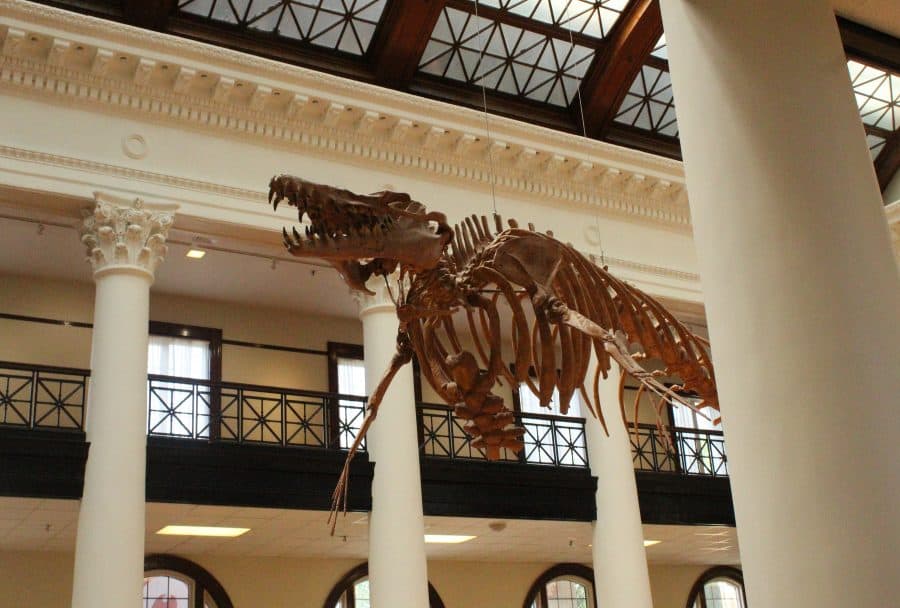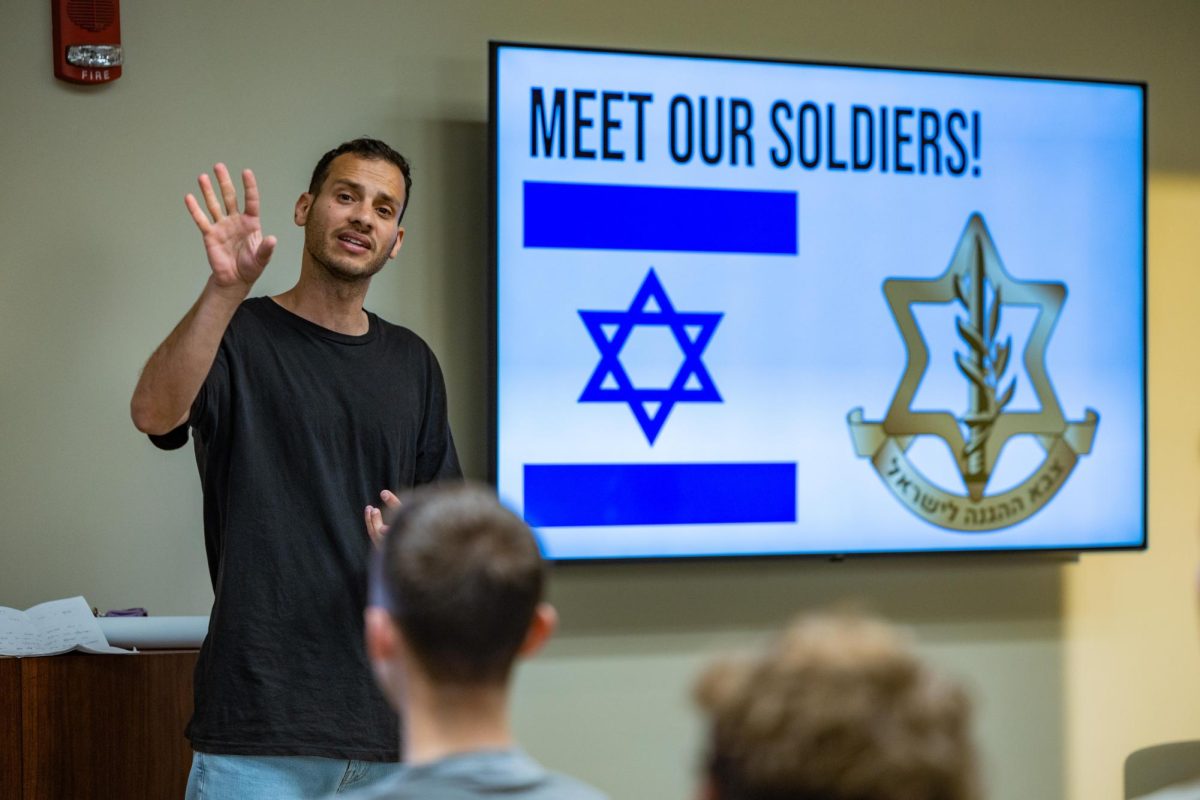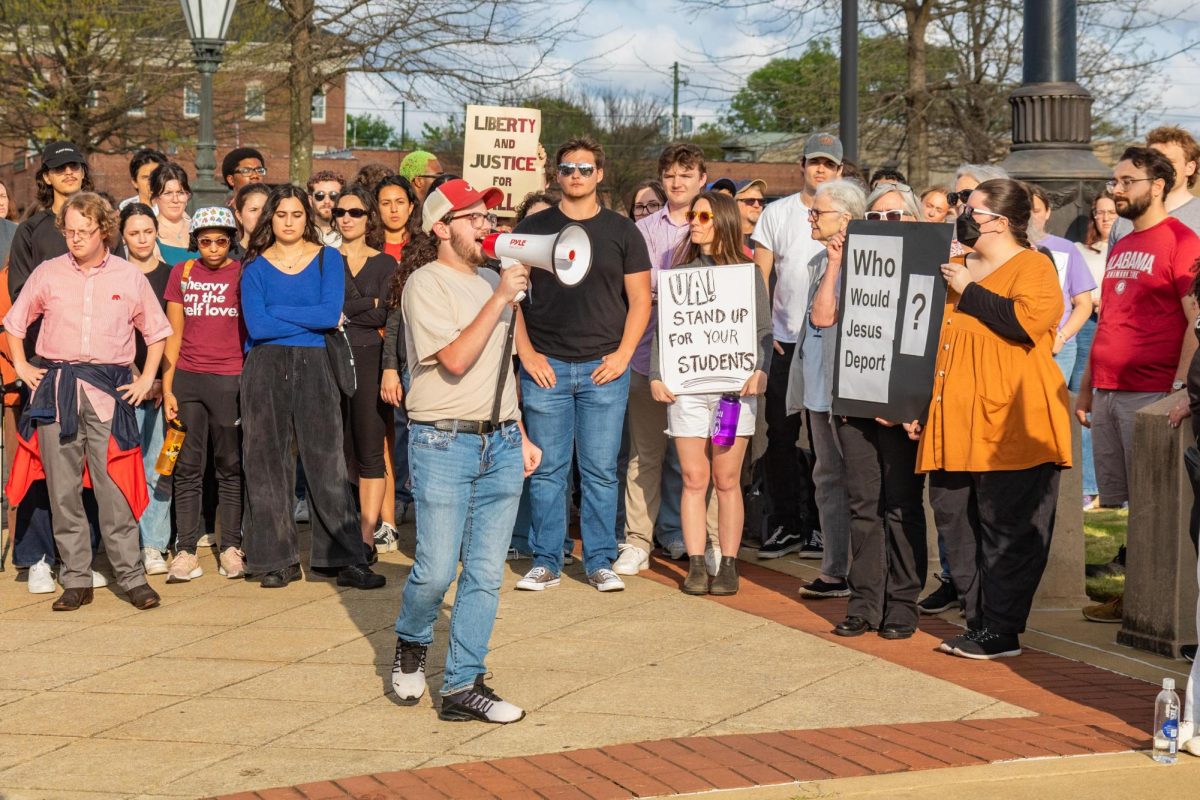A renowned vertebrate paleontologist addressed a full audience of University of Alabama students and faculty members on Thursday, speaking about her work studying dinosaurs. It was the second lecture in the ALLELE seminar series, which focuses on teaching the Alabama public about evolutionary sciences.
“I am always happy to talk to people interested in science,” said speaker Kirsti Curry Rogers.
Growing up in southern Missouri, Rogers knows what it’s like to live in a state where science competency is below the national average. Rogers explained that evolution is a fact, but it is important to understand people who challenge it so that, hopefully, they can not only be educated, but guided towards a more scientific mindset.
“Science isn’t intimidating, it can be understandable,” Rogers said.
Rogers, a paleontologist from Macalester College, focused her presentation primarily on her field of specialty: long-necked dinosaurs called sauropods and discoveries that have been made surrounding a sauropod known as Rapetosaurus krausei.
Having worked with the Mahajanga Basin Project in Madagascar, where the Rapetosaurus was initially discovered, Rogers explained the lack of scientific data on sauropods, especially regarding their early life. Rogers said it is important to study these fossils to learn about prehistoric life.
One day, while searching through miscellaneous bones, Rogers discovered baby sauropod fossils from the Madagascar collection that had been initially misidentified. She explained to the audience how these bones could be analyzed using bone histology and micro-CT scans.
Rogers went on to show how this research answered questions about rapetosaurus, such as how quickly they grew and what size they were once they hatched. This could be applied to further research on these specific sauropods and loosely be applied to theories about the lives of other sauropods.
The event’s organizer Thomas Tobin, an assistant professor in the Department of Geological Sciences, said that he was extremely pleased about the turnout for the event and how well Rogers communicated the complex science to the audience.
Elissa Doss, a sophomore majoring in early childhood education, said the lecture gave her an appreciation for how dinosaurs are researched and studied.
“It was extremely interesting,” Doss said.









